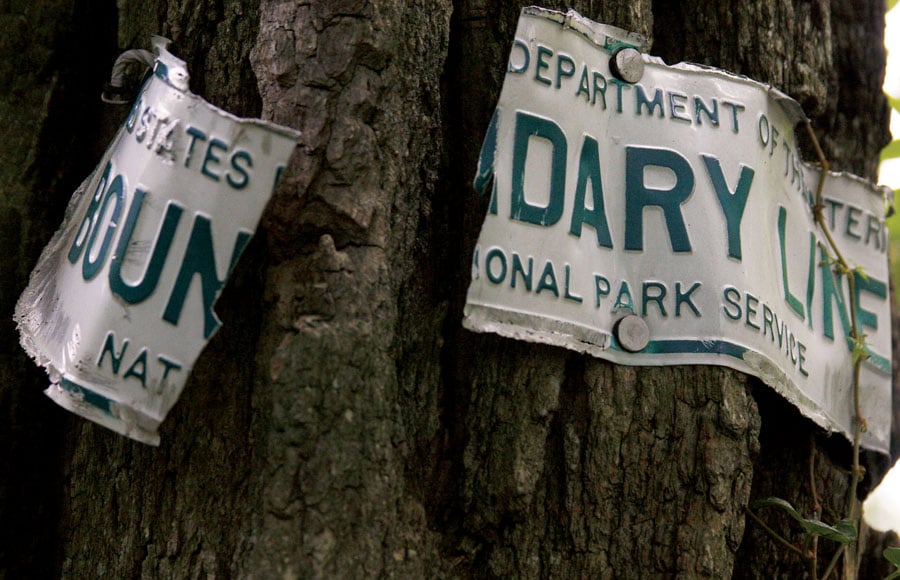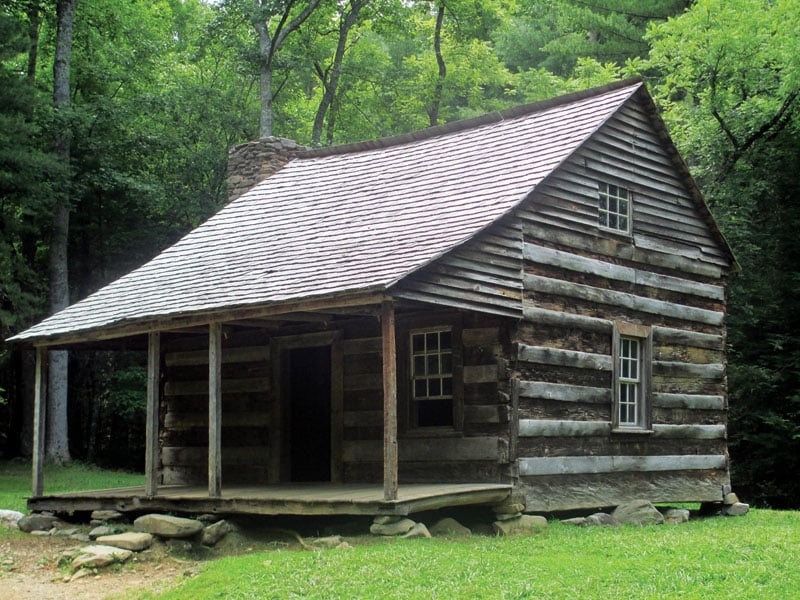Privatization and commercialization of public lands is increasing. More companies are being allowed to manage national forests and other federal and state-owned lands, and fracking and mining firms are often permitted to extract the minerals beneath. Partnerships between public lands managers and the private sector are also on the rise. For example, in Great Smoky Mountains National Park, one of the restored log cabins in Cades Cove is “brought to you by Log Cabin Maple Syrup,” with a plaque advertising the brand and logo.
What to think of all this? Everyone knows our parks and forests are short on funds, but where should we draw the line between corporate money and public land management?
BRENT MARTIN, Southern Appalachian regional director for The Wilderness Society, is concerned about the potential harms of privatization and commercialization, especially over the long term.
What are the greatest potential harms from privatization of public lands?
Martin: There are many, including a lack of oversight in environmental protection, overuse, unsustainable exploitation and depletion of natural resources, no guarantees of public access, and a lack of public input regarding management.
Which public lands in the East are most vulnerable to privatization?
I think that Eastern national forests are particularly vulnerable. National forests are the largest concentration of public lands we have and were acquired after decades of degradation and exploitation. The purpose of acquiring these lands after the passage of the 1911 Weeks Act was largely to protect watersheds from this type of degradation in the future. Since then, these lands have come to provide much more than watershed protection, including protection of biodiversity, a wide spectrum of recreational uses, and special designations such as Wilderness and Wild and Scenic Rivers. Any threat from privatization by default threatens the common good.
What about agencies that need the cash from selling public lands, or at least selling the mineral rights? Would you be willing to pay higher taxes to keep public lands public and those minerals in the ground?
I’m not sure it has to do with a lack of money or having to pay higher taxes. It appears to be more of a political issue, and one that’s partisan and driven by particular economic interests. However, if one of the states truly needed money, I would pay higher taxes in order to protect public lands.
What’s wrong with a state or national park allowing a private company to “sponsor” something in exchange for cash? Is this public-private partnership a realistic way to bring in much-needed funds?
I don’t think anything is necessarily wrong with the idea of sponsorships like this. I wouldn’t, however, want a billboard inside a park advertising Log Cabin Maple Syrup, nor would I want the parent company influencing park policy. Also, sponsorship messages should be presented tastefully and not in an obtrusive or glaring manner. Sponsorships such as these could be a good way to raise much-needed money, but there should be parameters on what the sponsors can expect in return, and it shouldn’t diminish the visitor experience in any way.
Randal O’Toole of the Cato Institute supports arguments in favor of privatization.
In your view, what are the main arguments in favor of privatizing public lands?
O’Toole: Public lands are poorly managed due to their ownership status. Lands are managed for their most politically productive, rather than economically productive, uses. But the political system encourages people to polarize the public in order to get the biggest share of the public-land pie. In contrast, markets encourage people to cooperate in order to produce the greatest net value.
Isn’t it wrong to sell off public lands—which, by definition, belong to everyone—to the highest bidder?
Most public lands are dedicated to various special interest groups and don’t truly benefit everyone. If they could be sold to the highest bidder, the revenues would help everyone by contributing to debt reduction or paying for other essential government services. For example, Forest Service studies have found that the market value of most public lands for recreation is many times greater than other uses combined. Recreation would be the dominant use if the lands were managed for maximum economic value.
Don’t we have a responsibility to preserve public lands for future generations instead of using them for short-term corporate gain?
Public land managers often become just as exploitative of the land for short-term gains, especially when their agencies are allowed to keep some or all of the receipts from resource sales. Elected officials can rarely see beyond the next election, while private businesses have been known to sell 99-year bonds or make investments that aren’t expected to pay off for decades.
Even if just mineral rights are sold, won’t the exploitation of those minerals severely diminish the wilderness character of many public lands?
Open-pit mining can conflict with many other resources. But many minerals can be extracted in ways that aren’t so damaging. Oil and gas production, for example, uses very little land. In private hands, the owners would balance uses among various groups and what they’re willing to pay.
How far should commercialization go? Should companies be allowed to sponsor buildings or even geologic features in national and state parks?
Absolutely. Private sponsorship of recreation, scenic, and historic resources makes perfect sense. That doesn’t mean spelling out Exxon or Shell Oil in giant letters on the landscape. But many museums and other urban facilities receive private donations, so there’s no reason why public lands couldn’t do the same.








